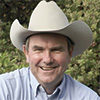Such family farm and ranch operations fascinate me and are the backbone of the most productive agricultural machine the world has ever known.
I’ve written about countless such operations in my career and you are probably familiar with, or involved with, one yourself.
I’ve always wondered, though, how did it work out that each sibling gravitated to one specialty, such as the crops or the cows?
Did they vote or fight over whether they got to wrangle cattle or socket wrenches or, could it possibly be, all the siblings were happy and doing what they most enjoyed?
As a middle child, my preconception was that these decisions were made for the siblings based on the centuries-old concept of “primogeniture.”
This is the right, by law or custom, of the first-born son to inherit the entire estate, to the exclusion of his siblings.
Again, being a middle child, I figured the first-born son got to pick first on whether he wanted to manage the farm, the cows or the shop.
I also figured that the baby of the family, always the most spoiled, got to pick second. As usual, the middle child got what was left over or handed down.
What a terrible thing it would be in life if you loved cattle and hated to drive tractor, but because your brother was born first, you had to plant spuds while he got to play cowboy.
Or, if you loved the feel of a wrench in your hands and couldn’t find the handle on a rope, but were forced to be a rancher instead of a wrencher.
I decided to get to the bottom of this phenomenon one time in Texas when I was interviewing just such a family.
Imagine my surprise when all three brothers said they were doing exactly what they wanted, made the decision for themselves and wouldn’t think of trading jobs! I wondered: How could this be? Surely it couldn’t have been a coincidence. I decided to probe the dynamics of this impressive clan.
The oldest brother said, “Daddy always took me to farm shows with him and he was teaching me how to drive a tractor before I could walk.
For Christmas I got pedal tractors, lace-up boots, a CAT hat and a set of bib overalls. I remember Daddy saying,
‘I’m counting on you to run the farm because your brothers couldn’t grow a radish and wouldn’t know an International Harvester from a hackamore.’ ”
The middle child laughed and said, “Daddy always took me with him to bull sales and he put a rope in my hands instead of a rattle.
I got a pony for Christmas when I was 5 and always got a piece of tack or cowboy boots for Christmas. Daddy always told me,
‘I’m counting on you to run the cattle because your other brothers don’t know a cow from a cultivator and couldn’t stay on a horse in a stiff breeze.’ ”
The third son chuckled and said, “Daddy was always giving me stuff to fix, from a toaster to a transmission.
I got an Erector set when I was 4 and a tool from Sears every Christmas. He told me, ‘Your brothers wouldn’t know a grease gun from a shotgun, so I’m counting on you to run the shop when I retire.’”
Rather than a coincidence, it was clear that each son had been programmed since birth to assume the role each would eventually play.
But I wondered, what role had the mother played? Was she just an innocent bystander, or was she in on the con job?
To a brother they all said that their mother told each one of them the exact same thing: “You know I’m counting on you to run the (farm, cattle or shop as the case may be) because your father doesn’t know anything about it.” ![]()









